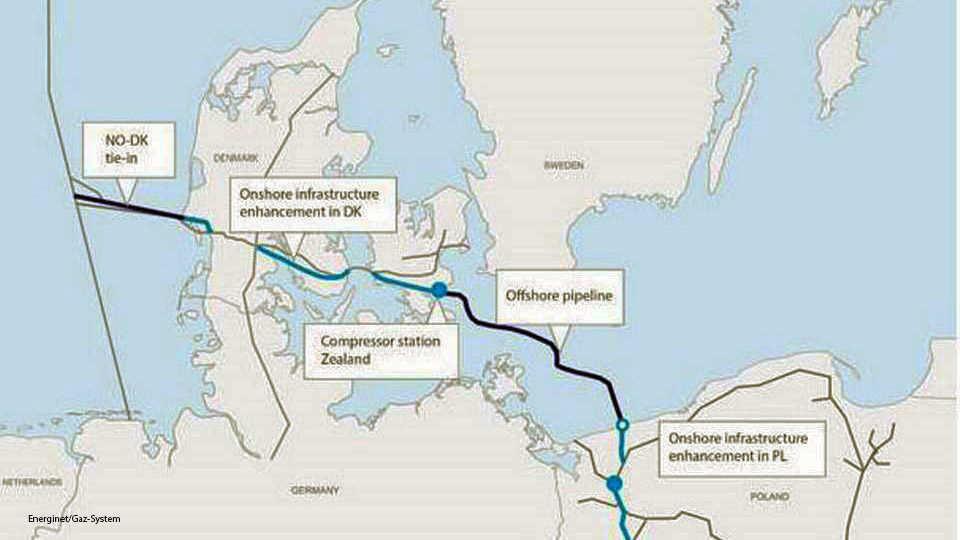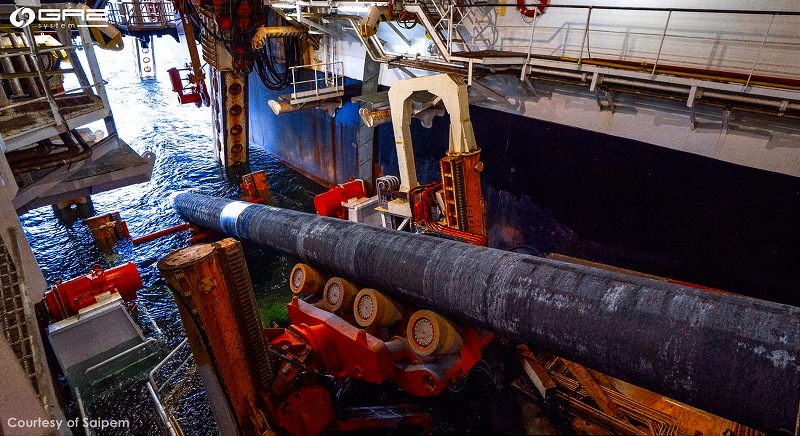The Polish minister for strategic energy infrastructure, Piotr Naimski, stated that the underwater section of the Baltic Pipe has been completed. He emphasized, that this day was a significant step forward in Poland achieving its desire to secure energy independence in 2022.
He noted that the pipeline’s capacity will amount to 10 billion cubic meters of gas from Scandinavia per year, which is comparable to the amount of gas Poland is purchasing as part of its multi-annual contract with Russia’s Gazprom, which will expire in December 2022.
Tomasz Stępień, the CEO of Gaz-System which is responsible for the pipeline’s construction, emphasized that the underwater part of the Baltic Pipe was the section that was most demanding organizationally and technically. He added that this step was completed on schedule.
“Ahead of us are still some technical and reception tests. We have about a year to conduct these trials, so that we can initiate the commercial gas transfer from Norway to Poland on Oct. 1, 2022,” he said.

During the construction of the 275-kilometer-long pipeline in the sea areas of Denmark, Sweden and Poland, Gaz-System has used over 22,000 pipe sections each with a 900-millimeter thickness. All of the pipes were laid on the Baltic Sea bed by specialized naval vessels which were actively working for 24 hours a day. Around 1,100 people were engaged with the project.
As part of the construction, two tunnels were also drilled in the areas in which the pipeline exits to the surface. The Polish tunnel is 600 meters long and the Danish one is around 1 kilometer long.
The Baltic Pipe has been acknowledged as a “Project of common interest” and has maintained this status since 2013. The pipeline has received funding from the EU as part of the “Connecting Europe” initiative. The total value of the funding so far has amounted to almost €267 million.
Through the pipeline, Poland expects to diversify its gas supply and improve energy security for the country and the broader region. The project’s importance is highlighted by the current situation in which Europe is suffering from gas shortages, mainly due to Russia’s energy policies.
Underlining Poland’s point about energy security, this week Belarusian President Alexander Lukashenko threatened to suspend the transfer of Russian gas through its territory if EU sanctions are issued in relation to the migrant crisis currently underway at the Polish-Belarusian border.





